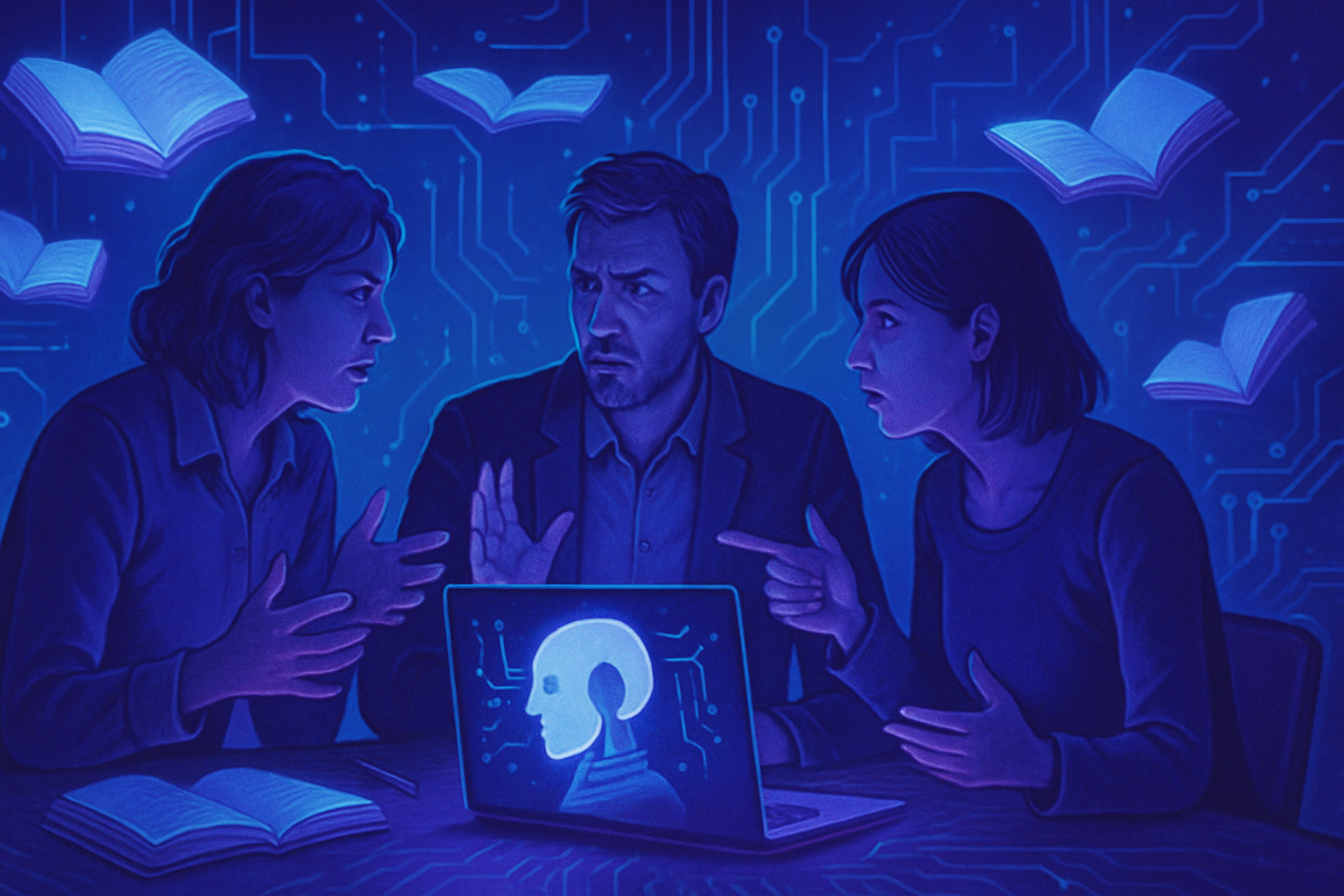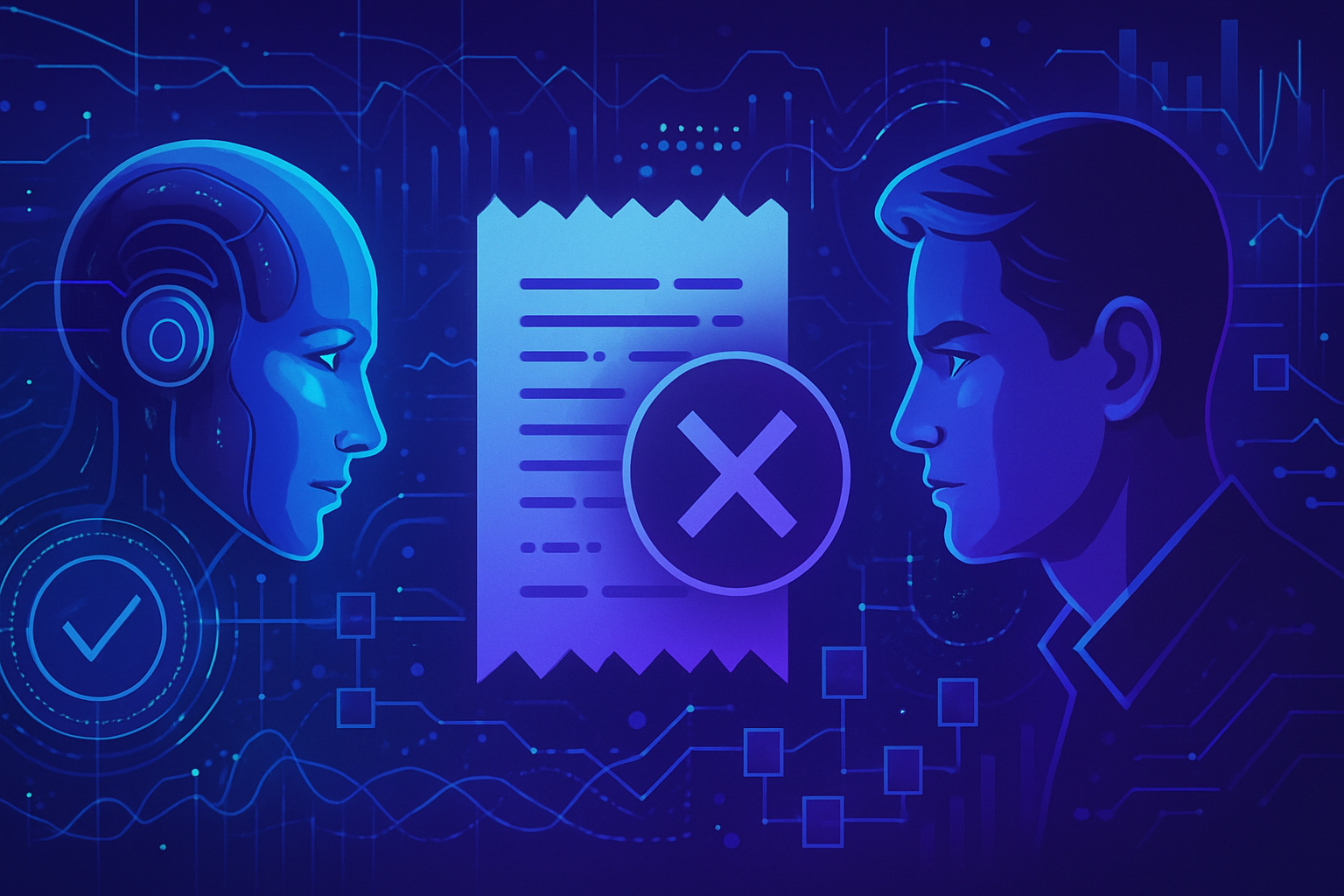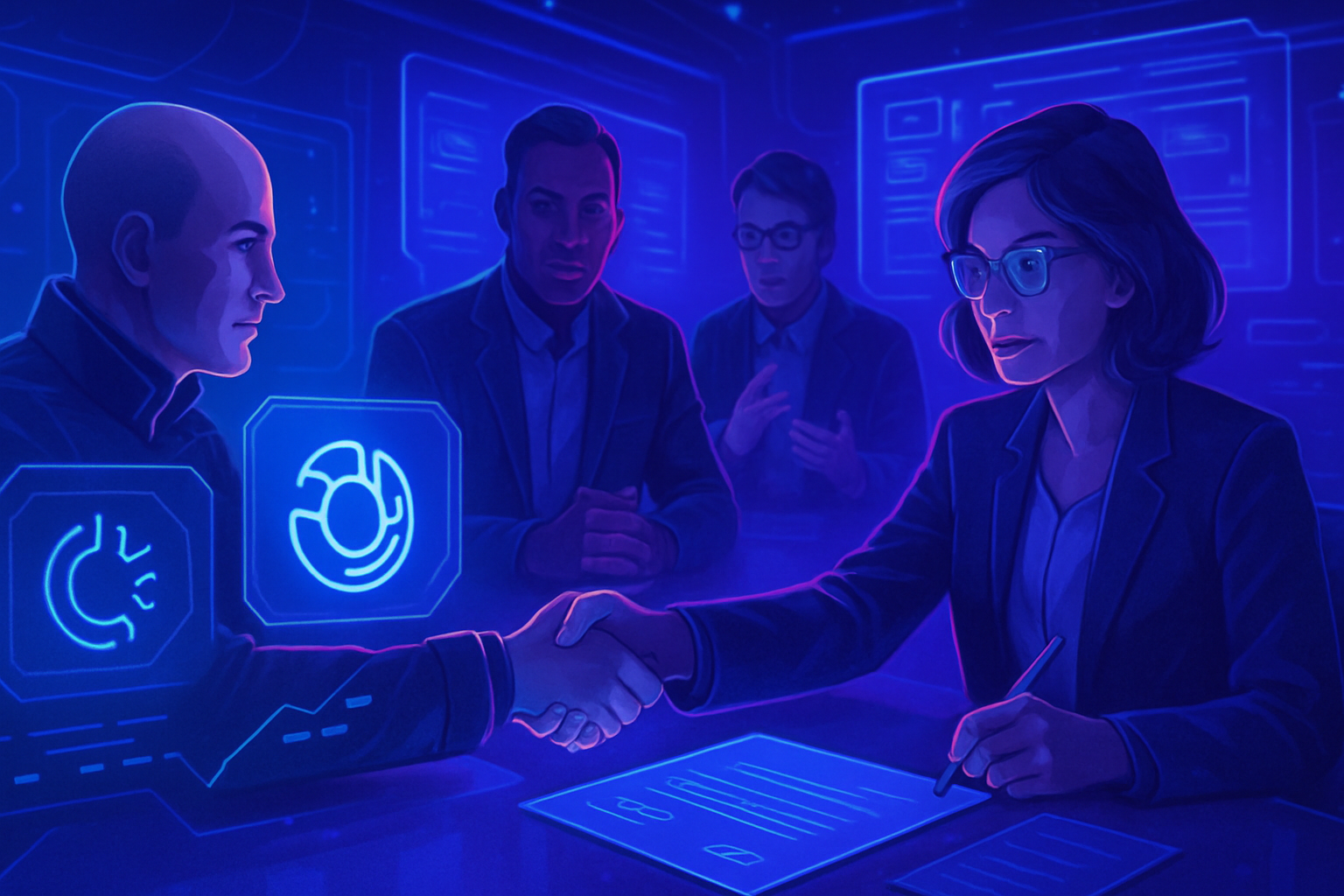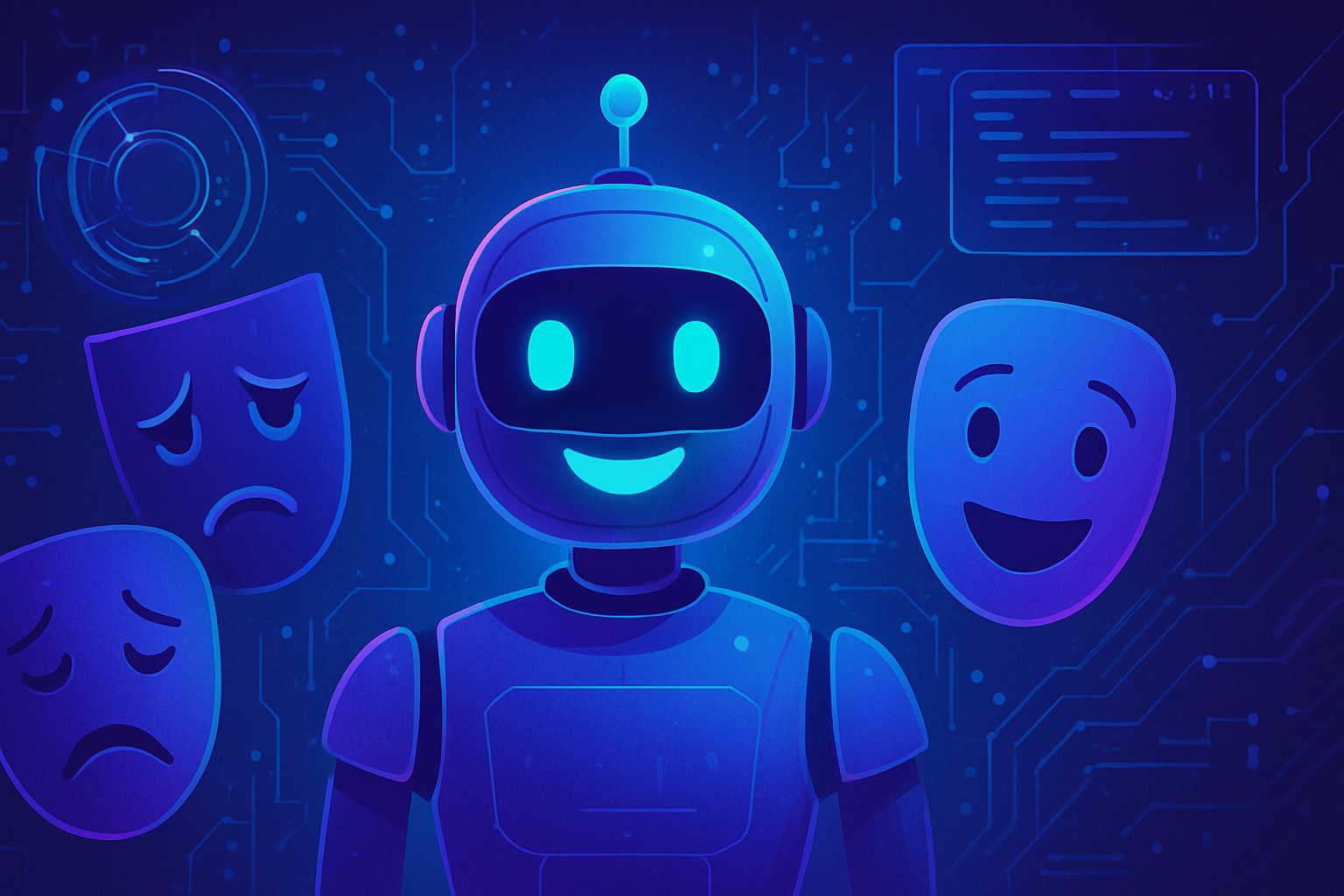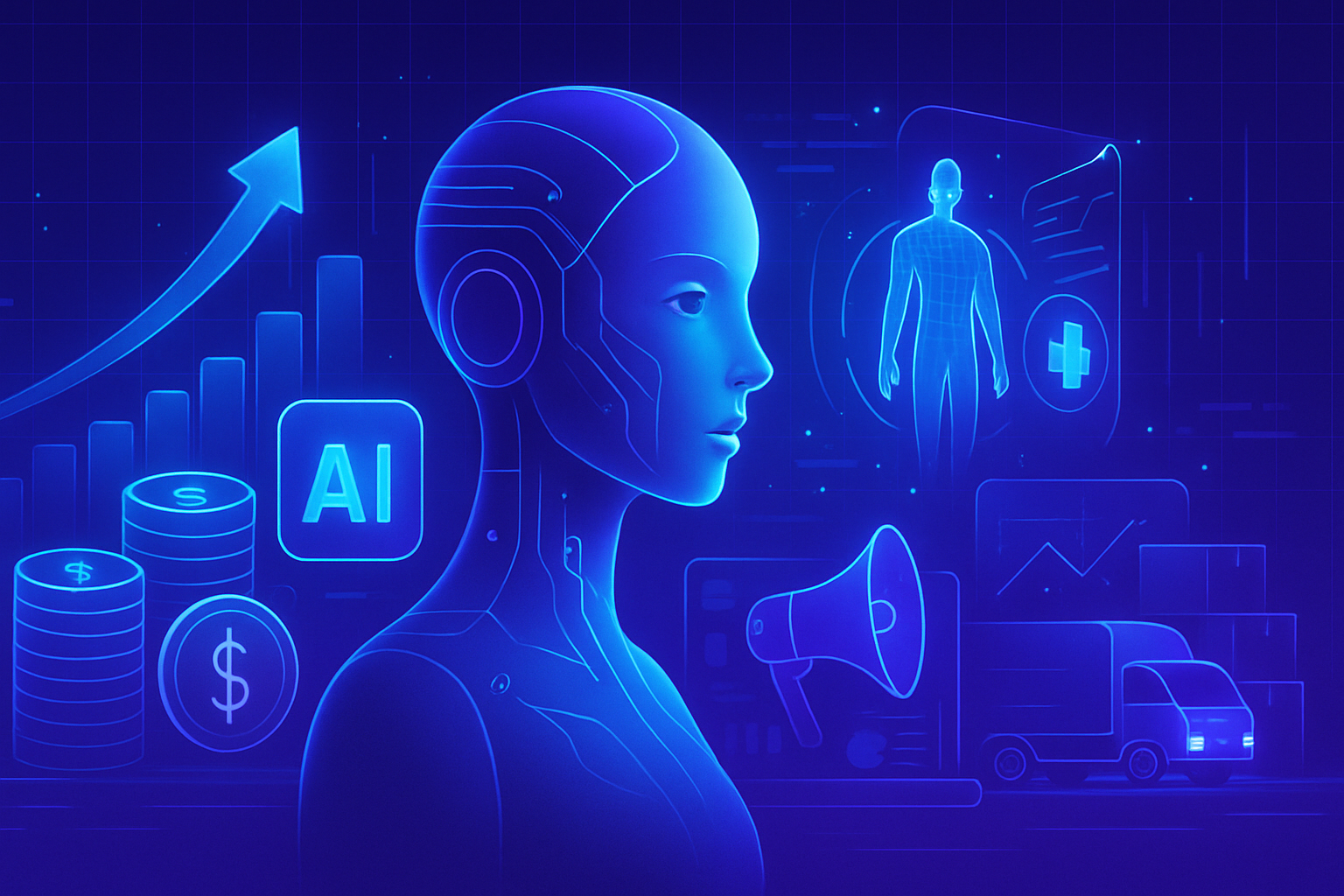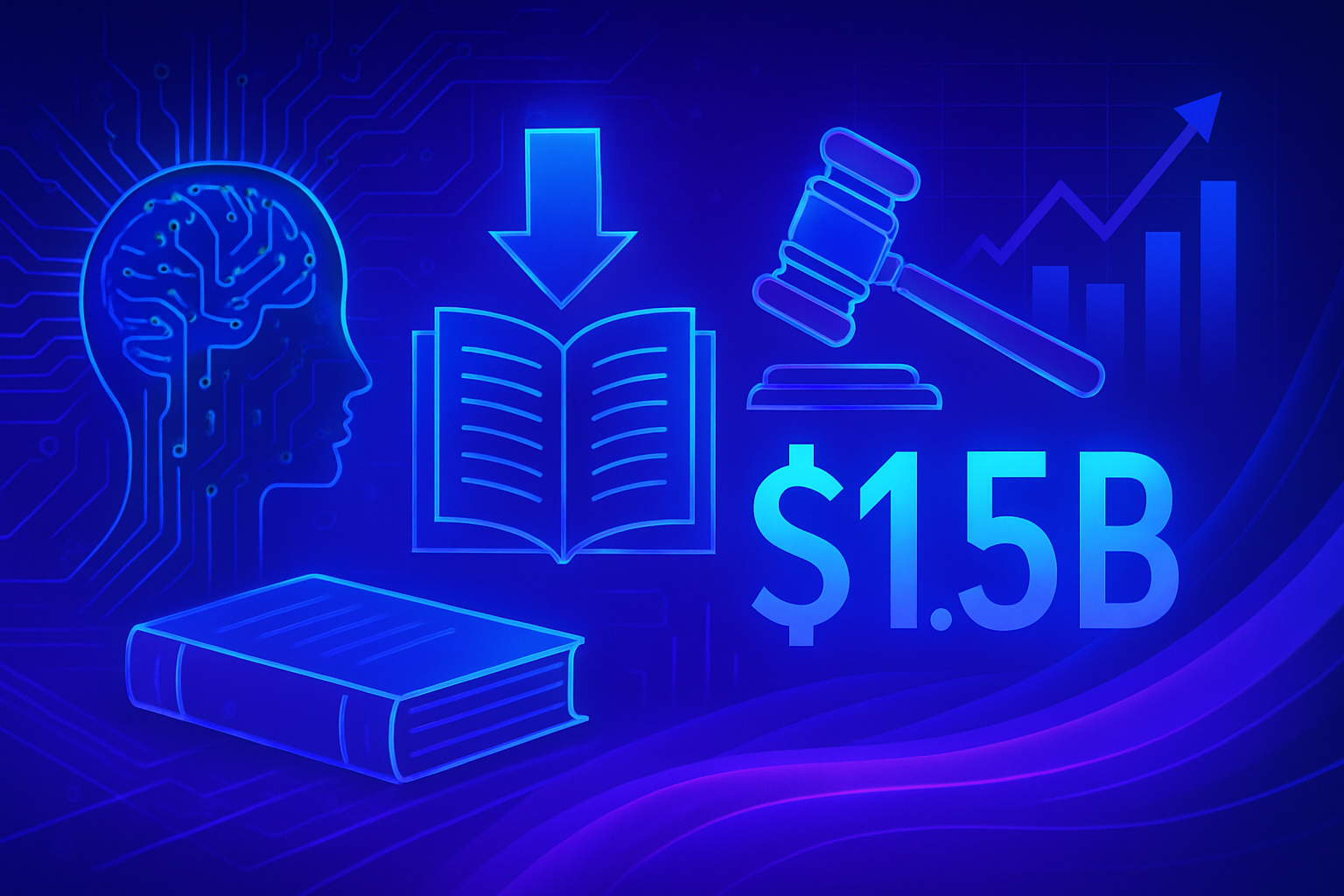Authors and Editors Face AI, a real dilemma is emerging in the literary world. The claim of writers is forcefully rising, denouncing the appropriation of their work by artificial intelligence technologies. Their voices unite to demand a commitment from editors to restrict the use of these tools.
The open letter from authors highlights a troubling reality: technological innovation should not harm human creativity. Writers are demanding concrete actions, such as hiring human actors for audiovisual narrations. This call for responsibility raises deep questions about the balance between progress and respect for creators.
An Open Letter from Authors
An open letter, signed by renowned authors such as Lauren Groff and Lev Grossman, urges publishers to limit the use of artificial intelligence (AI) tools. This initiative aims to protect the rights of writers in the face of a system that they see as exploiting their creativity. The authors assert that their work is “stolen” by technology companies that, instead of properly compensating writers, profit from their unpaid labor.
Authors’ Demands
The signatories ask publishers to commit to employing only human narrators for audiobooks. This measure would ensure that the voices and emotions of the stories are authentic, rather than replaced by machines. The main argument rests on the necessity of valuing human talent in a sector where AI tends to reduce human interactions for the sake of profitability.
Authors also pose a key demand: they want publishers to promise never to publish works generated by machines. This statement reflects a desire to preserve literary integrity and protect the writing profession from technological overreach.
Reactions and Increased Support
Initially, the letter received support from an already impressive group of writers. In just twenty-four hours, more than 1,100 additional signatures were added, thereby demonstrating widespread support within the literary community. This phenomenon underscores a growing concern about the impact of AI on the publishing industry.
Legal Conflicts with Tech Companies
In light of this issue, many authors do not hesitate to file lawsuits against technology companies that utilize their works to train artificial intelligence models without permission. However, federal judges have recently dealt significant setbacks to these proceedings, calling into question the effectiveness of these legal remedies.
Consequences for Publishing and Creativity
The stakes surrounding the protection of writers’ work are considerable. An increased adoption of AI tools could lead to a devaluation of literary art and a detrimental uniformity in creations. Authors emphasize that books, as expressions of human thought, must not become mass-produced products, standardized by algorithms.
The literary industry must reflect on the future of creation in a world where technology continues to advance. The commitments made by publishers to support writers become essential to preserve the diversity of voices and ideas. Concerns about the future of the writing profession, in light of technological advancements, must not be taken lightly.
Additional Statements
By opposing the integration of AI into the literary creation process, voices are being raised to ensure that human expertise remains at the heart of writing. Publishers must choose between excessive innovation and a publishing model that respects and values authors. The desires of writers to protect their work in the face of rapid technological evolution are a clear indication of growing tension between creativity and automation.
The impact of this call to action is already being felt within the industry. The future of books created by algorithms raises ethical and social questions, making it necessary to achieve a balance between technological innovation and the protection of creators’ fundamental rights.
User FAQ Regarding Authors’ Requests on AI Use by Publishers
Why are authors asking publishers to limit the use of AI?
Authors believe that the use of AI in the publishing process threatens their work. They fear that their works will be used without fair compensation, and that AI will replace essential human jobs.
What are the main commitments authors are asking from publishers?
Authors are asking publishers to commit not to use AI tools to create books, to guarantee that they will only hire human audio narrators, and not to replace their staff with AI technologies.
How does the use of AI affect authors’ compensation?
Authors argue that AI companies profit from their work without paying them fairly. They believe that rather than receiving a fair share of the profits generated by their works, their labor is often used to train AI models without any compensation.
What is the reaction of publishers to these authors’ requests?
While some publishers have expressed support for the authors’ concerns, others continue to explore the use of AI, leading to tensions within the publishing industry.
What actions have authors taken against the use of AI?
In addition to seeking commitments from publishers, some authors have filed lawsuits against technology companies for unauthorized use of their books to train AI models.
Do other writers support these demands?
Yes, several writers have already signed an open letter carrying these claims, and this number continues to grow, indicating widespread support within the literary community.
What alternatives do authors suggest to the use of AI in publishing?
Authors advocate for traditional publishing methods, based on human work and collaboration, in order to preserve the quality and integrity of literary creation.
What is the debate regarding the use of AI in audiobooks?
The debate centers on the decision to use human narrators versus AI-generated narrators. Authors wish to prioritize human narrators to preserve authenticity in storytelling.
